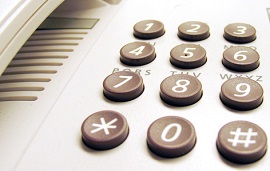If you have an HVAC issue, you may wonder whether it actually constitutes an emergency. You may ask yourself if the problem warrants the additional cost of an emergency call out or if it can just wait until normal business hours. So here is a guide to a few situations where it is important that you not delay placing that call.
Screeching Noises:
Any unusual noise from your HVAC system is a good indicator that something is not quite right, but there are some potentially serious issues that can cause an unpleasant screeching noise that requires emergency attention. Screeching noises can be a result of a dangerously high level of pressure in your compressor. This requires that the system is shut off immediately and repairs are conducted to minimize further damage. There are less serious issues that can cause a screeching noise such as a loose fan belt, but diagnosing the underlying cause needs to be left to the experts, so it is a good idea to err on the side of caution. If you hear a screeching noise, turn off your system immediately and place a call to your emergency HVAC technician.
Burning Smells:
If you can smell burning, it is never a sign of anything good. Appliances can emit a burning smell when something is seriously wrong, and your HVAC system is no exception. A burning smell from an air conditioner is usually a sign of an electrical problem. It results from an issue that has caused the unit to get so hot that something inside is melting. Don’t ignore this type of smell, shut off the system immediately; it needs attention urgently.
Buzzing or Popping Noises:
Just like a burnt smell, buzzing, popping or snapping noises can indicate the presence of an electrical problem. While vibration or buzzing noises can be a result of a loose component, it can also be a serious electrical issue. Although it may be tempting to have a look for yourself, your HVAC components form a complex electrical and mechanical system, so it should be left to the professionals. Locating and then repairing this type of problem takes experience and training, so switch off and wait for an emergency call out.
No Airflow:
Whether this is an emergency depends on the time of year and circumstances. If there is no air coming out of your HVAC system, it can be because of a multitude of issues. During the hottest or coldest times of the year, you are likely to find that you just can’t wait for regular business hours to get your system working again, so you need an emergency call out. If it is just a little warm outside and you can wait a day or two, schedule a regular appointment. In either case, your system should be shut off to prevent any strain on the system or further damage.
If you are still unsure whether your HVAC issue is considered an emergency, you should speak to your HVAC repair technician. Experienced, reputable technicians are usually happy to take the time to listen to the problem and determine if you need immediate attention.
